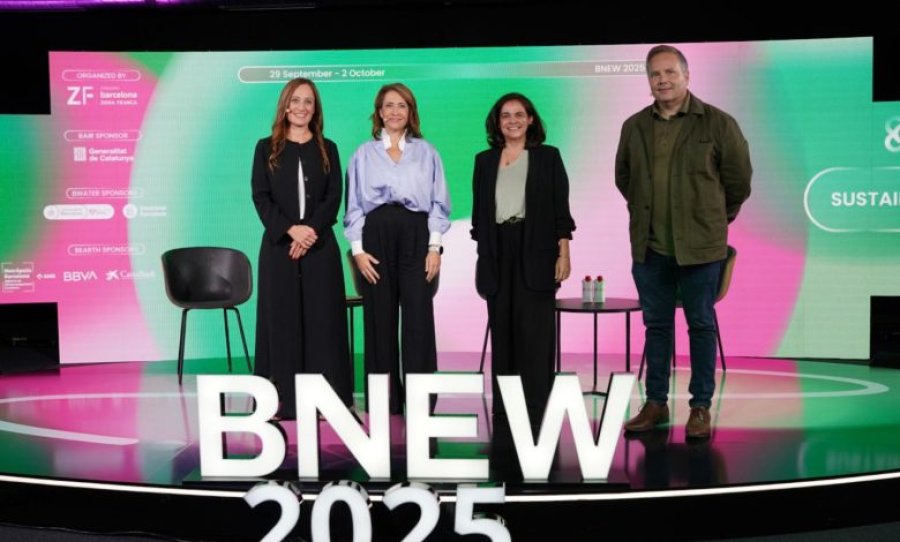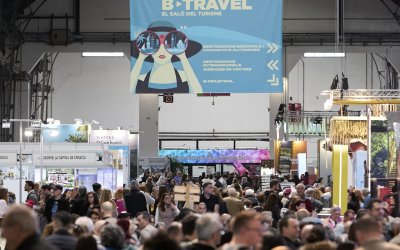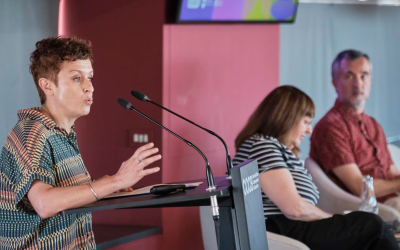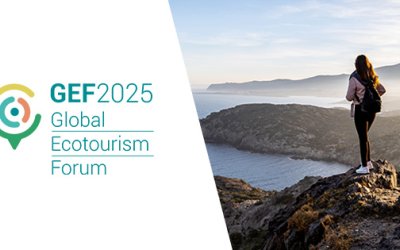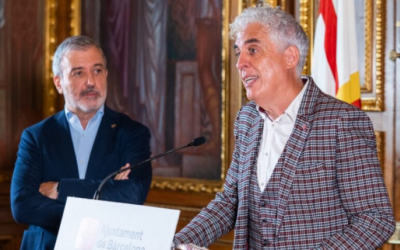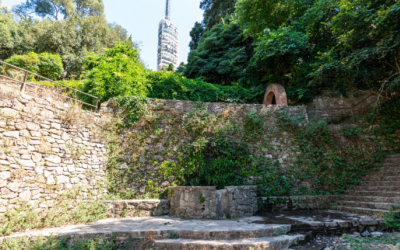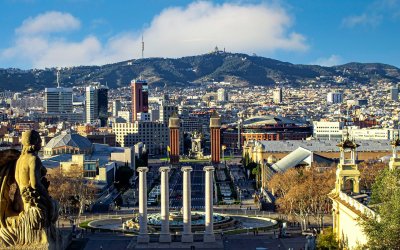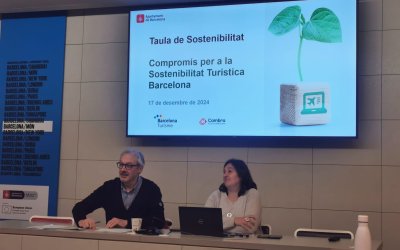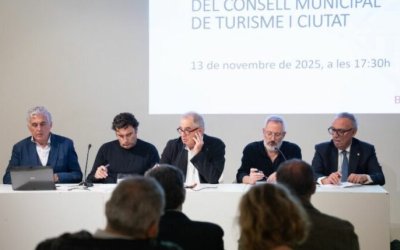Tourism took centre stage in the first session dedicated to sustainability at the Barcelona New Economy Week (BNEW), held from 29 September to 2 October. Elisabet González, Director of the Tourism Technical Office at Barcelona Provincial Council, acted as moderator. Sustainability and Tourism: Added Value for Destinations and Businesses brought together Raquel Sánchez, President of Paradores de Turismo de España, Ariana Martín, General Manager of the Real Club de Golf El Prat, and Javier González Abad, Tourism Councillor for the Baix Llobregat County Council, who discussed how sustainability can become a driver of competitiveness and transformation in the tourism model.
González opened the session by emphasising that tourism and sustainability are inseparable factors and are essential for addressing issues such as climate change adaptation, mobility and territorial cohesion. According to the latest tourism perception survey, one in three tourists chooses destinations based on sustainability criteria and 40% would be willing to pay more for environmentally friendly services. For their part, more than 1,200 companies are signatories to the Barcelona Destination Tourism Sustainability Commitment. These figures demonstrate the growing interest of the public and industry organisations.
Sustainability as an opportunity and added value
Raquel Sánchez recalled that sustainability has been part of Paradores’ DNA since its creation almost a century ago, with a model that has always sought to diversify, de-seasonalise and decentralise tourism, taking it to less visited places of great natural and cultural value. She also highlighted the Nature for the Senses programme, which offers activities in nature to showcase the surroundings and the identity of the area, creating opportunities for local businesses and producers. “We see our commitment to public service from a perspective of responsibility, trying to ensure that our impact on the area is as positive as possible,” she said.
In turn, Ariana Martín presented the case of the Real Club de Golf El Prat, which has turned sustainability into an opportunity. The club, located between Sabadell and Terrassa, halfway between two natural parks, chose to restore the native landscape, increase biodiversity and use only reclaimed water for irrigation. 20 years later, the result is a space that is fully integrated into the natural environment, with more than 3,000 transplanted oak trees, and wildlife that finds shelter and food there. In its social dimension, it is committed to accessible sport, with an adjoining public course managed at competitive prices to promote golf among the local population and programmes that allow vulnerable groups to enjoy it.
Javier González Abad from Baix Llobregat stressed that sustainability is “a lever that helps us improve the quality of life of residents and the competitiveness of local businesses.” Initiatives such as the Sabors de l’Horta culinary campaign, which connects farmers and restaurateurs to promote local produce, are structured around the county’s strategic plan, which aims to strengthen identity and regional cohesion.
He also highlighted the more than 100 Baix Llobregat companies signed up to the Barcelona Destination Tourism Sustainability Commitment, of which the Real Club de Golf El Prat is also a member, and which encourages continuous improvement among its members.
Future challenges
In the final part of the debate, participants agreed that the main challenge for tourism is managing its impact, especially in more mature destinations, and ensuring that the benefits it generates reach the whole of society.
While Ariana Martín identified reducing water consumption as one of the major challenges for the golf sector, González stressed the importance of strengthening shared governance between towns and making use of digital tools such as Big Data, artificial intelligence and Machine Learning to move towards smart tourist destinations, capable of better distributing visitor flows and generating a balanced positive impact.
The session concluded with a common idea: sustainability is no longer a trend, but the basic pillar of the new tourism model.
The Barcelona New Economy Week (BNEW) is a B2B event dedicated to the new economy in sectors like aviation, digital industry, mobility, sustainability, talent, health and experience, sponsored by the Barcelona Provincial Council.
